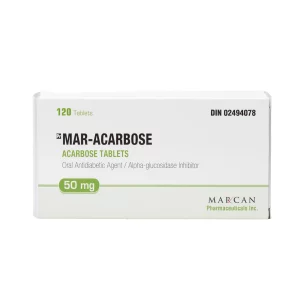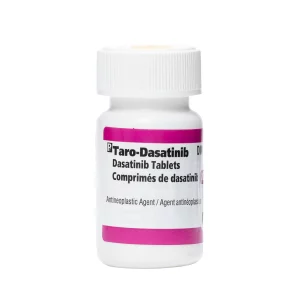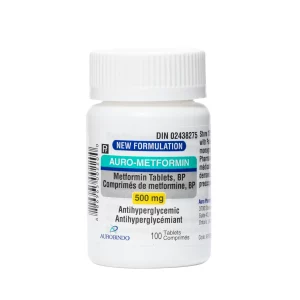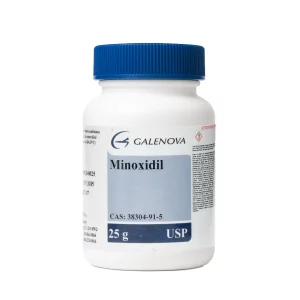Your cart is empty.
Your cart is empty.
Cialis is a medication best known for supporting erectile function by improving blood flow. Cialis’s mechanism of action involves relaxing blood vessels, allowing for increased blood flow to specific areas of the body. This makes it an effective treatment for erectile dysfunction. New research is exploring Cialis’s anti-aging benefits, investigating whether Cialis has anti-inflammatory effects that could benefit broader health goals. Chronic inflammation plays a significant role in aging and disease.
This article examines the science behind Cialis and inflammation, discussing current studies and potential benefits. We’ll explore how Cialis may fit into wellness routines and its potential impact on overall health, providing insights into its possible role in supporting healthy aging and well-being.
Cialis, known by its generic name Tadalafil, is a phosphodiesterase type 5 (PDE5) inhibitor primarily used to treat erectile dysfunction (ED) and benign prostatic hyperplasia (BPH). Its mechanism of action involves relaxing smooth muscle and increasing blood flow, which improves erectile function. However, these effects aren’t limited to sexual function; they extend systemically through the vascular system. By enhancing blood flow, Tadalafil’s effects can potentially benefit various bodily systems, sparking interest in its broader therapeutic applications. As research continues to uncover the full scope of its benefits, Tadalafil’s role in overall health and wellness is becoming increasingly understood.
Inflammation is the body’s immune response to stress, damage, or toxins. Acute inflammation is a short-term response that helps the body heal, whereas chronic inflammation is a prolonged response that can lead to health issues. Chronic inflammation contributes to various problems, including heart disease, cognitive decline, aging, and fatigue. When inflammation persists, it can damage healthy tissues and organs, increasing the risk of chronic diseases. Reducing chronic inflammation through anti-inflammatory measures, such as a balanced lifestyle and targeted interventions, can help mitigate these risks and promote overall well-being. By managing inflammation, individuals can support their body’s natural healing processes.
Researchers are studying Cialis for its potential anti-inflammatory effects, which may be linked to improved blood flow and endothelial function. By enhancing blood flow, Cialis may reduce inflammatory responses and oxidative stress, a state of imbalance between free radicals and antioxidants. Additionally, Cialis may lower cytokine levels, which are signaling proteins that trigger inflammation. This potential reduction in inflammation could be relevant in age-related diseases and vascular inflammation, where oxidative stress plays a significant role. By reducing oxidative stress and inflammation, Cialis may have a beneficial impact on overall health and potentially support healthy aging.
Key studies suggest Cialis may have anti-inflammatory properties, including:
While these findings are promising, more human data is needed to confirm Cialis’s anti-inflammatory effects and fully understand its potential benefits.
Cialis differs significantly from traditional anti-inflammatory medications like NSAIDs (ibuprofen, aspirin). While NSAIDs directly block inflammation-producing enzymes, Cialis targets blood flow and vascular function. By improving blood flow and endothelial function, Cialis may reduce inflammation indirectly. This mechanism may make Cialis a gentler option for the stomach and organs compared to some NSAIDs. Cialis’s unique approach may offer an alternative for individuals seeking to manage inflammation without the potential risks associated with traditional anti-inflammatory medications. This distinction highlights the potential benefits of Cialis in supporting overall health and wellness.
When considering combining Cialis with anti-inflammatories, it’s essential to be aware of potential drug interactions. While generally safe for short-term use under medical supervision, regular or combined use requires caution. Cialis and anti-inflammatories may interact in complex ways, and individual health conditions can affect their safe use. Consulting a healthcare provider is crucial to determine the best approach for your specific needs. They can help you weigh the benefits and risks, ensuring safe and effective treatment. By discussing your medical history and current medications, you can make informed decisions about using Cialis and anti-inflammatories together.

Reduced inflammation from Cialis may benefit various health areas, including:
Cialis may be considered a wellness aid, potentially supporting overall health and well-being. However, it’s not a replacement for established anti-inflammatory medications. Its benefits should be viewed as complementary to a healthy lifestyle and comprehensive wellness approach.
Various groups may be interested in exploring Cialis’s potential benefits:
It’s essential to note that this use of Cialis is considered off-label, meaning it’s not formally approved by regulatory authorities. As with any medication, it’s crucial to consult with a healthcare provider before using Cialis for this purpose.
Cialis isn’t officially an anti-inflammatory medication. However, research suggests it may have anti-inflammatory effects through improved vascular health.
Some health-conscious individuals use Cialis for its potential anti-inflammatory effects without ED, but medical guidance is crucial to ensure safe use.
Cialis doesn’t work like ibuprofen or aspirin; it doesn’t block pain or inflammation enzymes. Its effects are linked to improved blood flow and nitric oxide.
Taking Cialis and NSAIDs together can be safe for most people. But remember to consult a doctor to confirm it’s suitable for your health profile.
Noticing Cialis’s anti-inflammatory effects may take time. Benefits can be subtle, building gradually, and are influenced by individual lifestyle and overall health factors.
References
https://pmc.ncbi.nlm.nih.gov/articles/PMC2643112
https://doi.org/10.3390/cells13221906
https://doi.org/10.1016/j.pharep.2019.02.008.


Acarbose blocks carbohydrate breakdown in the small intestine, preventing rapid glucose absorption spikes.

Dasatinib eliminates senescent cells through selective apoptosis, clearing age-damaged tissues from the body.

Metformin inhibits hepatic glucose production while enhancing insulin sensitivity, offering cost-effective Type 2 diabetes management.

Minoxidil dilates scalp blood vessels, increasing nutrient delivery to hair follicles while extending the anagen growth phase duration.
Unlock savings on bundles and elevate your online experience today!